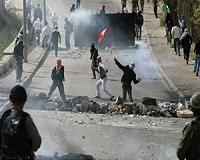| . |  |
. |
Beirut, Lebanon (UPI) Sep 16, 2010 As tension mounts between Israel and the Iranian-backed Hezbollah militia, Lebanese authorities have launched a global manhunt through Interpol for a retired army colonel suspected of spying for Israel. That's the latest twist in an espionage scandal that has sent political shock waves throughout a nation gripped by festering sectarian rivalries and led to the arrest of some 150 suspects. Five have already been sentenced to death by military tribunals. The fugitive, Ghassan al-Jidd, was first publicly fingered by Hezbollah leader Hassan Nasrallah in August when he unveiled a list of alleged Israeli agents who hadn't figured in any disclosures by Lebanese authorities. But al-Jidd, whom Nasrallah also suggested may have played a role in the 2005 assassination of former Prime Minister Rafik Hariri, Lebanon's leading statesman, is believed to have fled to Israel. A half-dozen other suspects, including a serving army colonel, have also escaped to the Jewish state since the crackdown began in November 2008. With Israel and Hezbollah ratcheting up their bellicose rhetoric, there are deepening fears that a new war is looming in the not-too-distant future. That could account for the apparently massive effort Israeli intelligence has clearly mounted, particularly since the 2006 war between Israel and Hezbollah ended in a battlefield stalemate. Hezbollah has been rearming heavily since that 34-day conflict and building elaborate defense lines that run from south Lebanon, cockpit of the conflict, to the Bekaa Valley in the northeast, Hezbollah's heartland. Israeli leaders claim the powerful Shiite movement has more than 45,000 missiles and rockets, supplied by Iran and Syria -- nearly four times the number it had when the 2006 war erupted. These are believed to include several hundred weapons capable of hammering Tel Aviv and other strategic targets across all of Israel. For Israel's Military Intelligence and the Mossad, its foreign intelligence service, their highest priority is locating the launching sites and underground bunkers where these weapons are stored so the air force and army commandos can knock them out quickly if war erupts. The crackdown was apparently initiated by Hezbollah's security apparatus following the February 2008 assassination of the movement's iconic military chief, Imad Mughniyeh, in Damascus, Syria. Hezbollah accused Israel. But although Mughniyeh had been a prime Mossad target for nearly three decades, he had many enemies and who was behind his assassination remains a mystery. The continuing roundup of the spy suspects has been one of the biggest counterintelligence operations mounted anywhere in the world over the last six decades. It has surpassed, in numbers at least, any espionage scandal that occurred during the Cold War. One of the first to be arrested in this extraordinary counterintelligence coup was Adib al-Alam, a retired brigadier general of Lebanon's principal security agency, the General Security Service, locally known as the Surete Generale. After he was apprehended April 10, 2009, with his wife and nephew, Alam confessed that he had been recruited by the Mossad as far back as 1982, when Israel invaded Lebanon to crush the Palestine Liberation Organization. The most prominent catch was Fayez Karam, 62, a highly respected former army general who headed the military's counter-terrorism and counterintelligence unit during the 1980s. Karam, arrested Aug. 2, was also a prominent member of the Free Patriotic Movement, a Maronite Catholic party that is a key Hezbollah ally. Although he didn't have an official position in FPM, he was close to its leader, former army commander and Prime Minister Gen. Michel Aoun. Even after nearly two years of one arrest after another, Karam's capture stunned the nation and left Lebanese wondering which of their leaders would be next. Yet it had been clear for some time that the sheer scale of the network underlined just how deeply the Israelis had been able to penetrate all levels and branches of Lebanese society. The Israeli network covered the entire spectrum of sects and political doctrines, Muslims and Christians, the high and the low, security officials and businessmen, politicians and humble artisans. The security services have been a particular target. The suspects include two former generals and at least four serving army colonels. Nasrallah echoed the alarm of many Lebanese when he asked in a recent speech, "How many more spies do we have in this country?"
Share This Article With Planet Earth
Related Links
 Clinton says Mideast peace 'within reach'
Clinton says Mideast peace 'within reach'Amman (AFP) Sept 16, 2010 US Secretary of State Hillary Clinton said on Thursday that the Israeli and Palestinian leaders are committed and serious about making peace, which is "within reach." She was speaking in Amman after talks with Jordanian King Abdullah II as this week's thorny negotiations continue apace between Israeli Prime Minister Benjamin Netanyahu and Palestinian president Mahmud Abbas. "They are ser ... read more |
|
| The content herein, unless otherwise known to be public domain, are Copyright 1995-2010 - SpaceDaily. AFP and UPI Wire Stories are copyright Agence France-Presse and United Press International. ESA Portal Reports are copyright European Space Agency. All NASA sourced material is public domain. Additional copyrights may apply in whole or part to other bona fide parties. Advertising does not imply endorsement,agreement or approval of any opinions, statements or information provided by SpaceDaily on any Web page published or hosted by SpaceDaily. Privacy Statement |